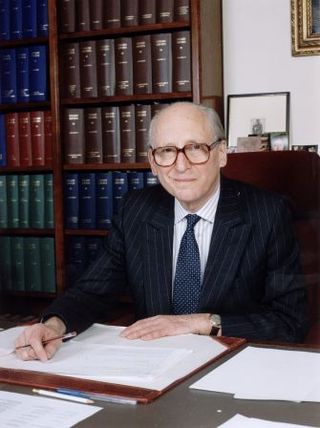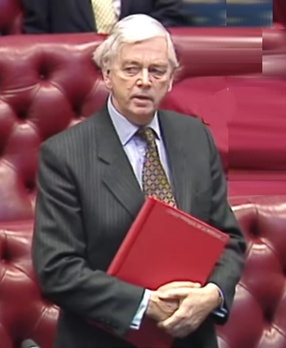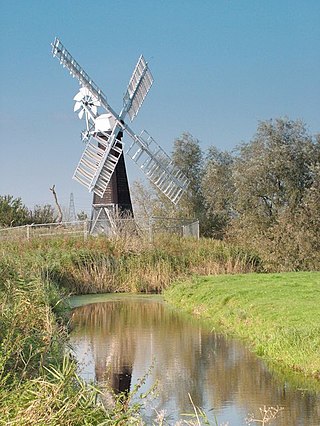Related Research Articles

Robin Brunskill Cooke, Baron Cooke of Thorndon, was a New Zealand judge and later a British Law Lord and member of the Judicial Committee of the Privy Council. He is widely considered one of New Zealand's most influential jurists, and is the only New Zealand judge to have sat in the House of Lords. He was a Non-Permanent Judge of the Court of Final Appeal of Hong Kong from 1997 to 2006.

Thomas Henry Bingham, Baron Bingham of Cornhill, was a British judge who was successively Master of the Rolls, Lord Chief Justice and Senior Law Lord. On his death in 2010, he was described as the greatest judge of his generation. The Baroness Hale of Richmond observed that his pioneering role in the formation of the United Kingdom Supreme Court may be his most important and long-lasting legacy. The Lord Phillips of Worth Matravers regarded Bingham as "one of the two great legal figures of my lifetime in the law". The Lord Hope of Craighead described Bingham as "the greatest jurist of our time".
In English criminal law, public nuisance is an act, condition or thing that is illegal because it interferes with the rights of the general public.

English tort law concerns the compensation for harm to people's rights to health and safety, a clean environment, property, their economic interests, or their reputations. A "tort" is a wrong in civil law, rather than criminal law, that usually requires a payment of money to make up for damage that is caused. Alongside contracts and unjust enrichment, tort law is usually seen as forming one of the three main pillars of the law of obligations.

Donald James Nicholls, Baron Nicholls of Birkenhead, was a British barrister who became a Law Lord.

Leonard Hubert "Lennie" Hoffmann, Baron Hoffmann is a senior South African–British judge. Currently, he serves as a Non-Permanent Judge of the Court of Final Appeal of Hong Kong; he formerly served as a Lord of Appeal in Ordinary from 1995 to 2009.
Peter Julian Millett, Baron Millett,, was a British barrister and judge. He was a Lord of Appeal in Ordinary from 1998 to 2004.
Sir Malcolm Thomas Pill is a former Lord Justice of Appeal, who was the longest-serving member of the Court of Appeal of England and Wales upon reaching mandatory retirement at age 75.

Burnie Port Authority v General Jones Pty Ltd is a tort law case from the High Court of Australia, which decided it would abolish the rule in Rylands v Fletcher, and the ignis suus principle, incorporating them generally into the tort of negligence.

Hunter v Canary Wharf Ltd [1997] UKHL 14 is an English tort law case on the subject of private nuisance. Several hundred claimants alleged that Canary Wharf Ltd, in constructing One Canada Square, had caused nuisance to them by impairing their television signal. The House of Lords held unanimously that such interference could not amount to an actionable nuisance; the nuisance was equivalent to loss of a view, or of a prospect, which had never previously been actionable.

Stone & Rolls Ltd v Moore Stephens[2009] UKHL 39 is a leading case relevant for UK company law and the law on fraud and ex turpi causa non oritur actio. The House of Lords decided by a majority of three to two that where the director and sole shareholder of a closely held private company deceived the auditors with fraud carried out on all creditors, subsequently the creditors of the insolvent company would be barred from suing the auditors for negligence from the shoes of the company. The Lords reasoned that where the company was only identifiable with one person, the fraud of that person would be attributable to the company, and the "company" could not rely on its own illegal fraud when bringing a claim for negligence against any auditors. It was the last case to be argued before the House of Lords.

Royal Bank of Scotland plc v Etridge [2001] UKHL 44 is a leading case concerned with English land law and English contract law and the circumstances under which actual and presumed undue influence can be argued to vitiate consent to a contract.
A v Hoare, [2008] UKHL 6, is a leading tort case in British law, decided by the House of Lords in 2008.

Administrative law in Singapore is a branch of public law that is concerned with the control of governmental powers as exercised through its various administrative agencies. Administrative law requires administrators – ministers, civil servants and public authorities – to act fairly, reasonably and in accordance with the law. Singapore administrative law is largely based on English administrative law, which the nation inherited at independence in 1965.

Green v Lord Somerleyton is an English land law and tort law case, concerning easements of surface water/ditch drainage and the tests for nuisance in English law. In this case there was no remedy for the flooding found to be natural and not recently exacerbated by the defendant. The court attached to the properties an old, 1921, easement of drainage passing both land holdings, in this case two common examples of lowland water engineering, dykes controlled against tides by one-way valves, mentioned in the properties' deeds and, duplicatively, established the right by prescription. The dykes lay in the claimant's own land who had failed to maintain them and failed to account for the flows caused by reduction of water extraction from the lake upstream. The claimant had failed to repair the pump and clear ditches on his own land which had been agreed between the previous owners to give channelled drainage from a lake above. It was for the claimant to recognise the danger posed by its waterline being raised in 1954 by the building up of a weir.

Huang v Secretary of State for the Home Department [2007] UKHL 11 is a UK constitutional law case, concerning judicial review.

R (Carson) v Secretary of State for Work and Pensions [2005] UKHL 37 was heard by the Lords of Appeal in the House of Lords on 26 May 2005 before Lord Nicholls, Lord Hoffmann, Lord Rodger, Lord Walker, and Lord Carswell.
Kuipers v Gordon Riley Transport, 1 C.C.L.T. 233 (1976) was a Canadian personal injury case involving negligence, standard of care, causation, and hindsight.
Jason W. Neyers is a Canadian legal scholar and professor at the University of Western Ontario.

Watkins v Home Office and others[2006] UKHL 17, was a United Kingdom legal case heard by the House of Lords where the Home Office made an appeal as to whether the tort of misfeasance in public office was actionable in the absence of proof of pecuniary losses or injury of a mental or physical nature. The appeal was upheld, ruling that the tort of misfeasance in public office is never actionable without proof of material damage as defined by Lord Bingham of Cornhill.
References
- ↑ Mynors, Charles (2002). The law of trees & forestry. London: Sweet & Maxwell. ISBN 0421590408.
- ↑ [2001] UKHL 55, para 6-8
- ↑ [2001] UKHL 55, para 9-10
- ↑ [2001] UKHL 55, para 3-4, 9-10
- ↑ [2001] UKHL 55, para 5
- ↑ [2001] UKHL 55, para 11
- ↑ [2001] UKHL 55, para 3-4
- ↑ Neyers, Jason W. (2002). "Lord Cooke of Thorndon's Final Appeal". Oxford University Commonwealth Law Journal. 2 (2): 265–270(6). doi:10.1080/14729342.2002.11421416.
- Full text of the judgment, [2001] UKHL 55